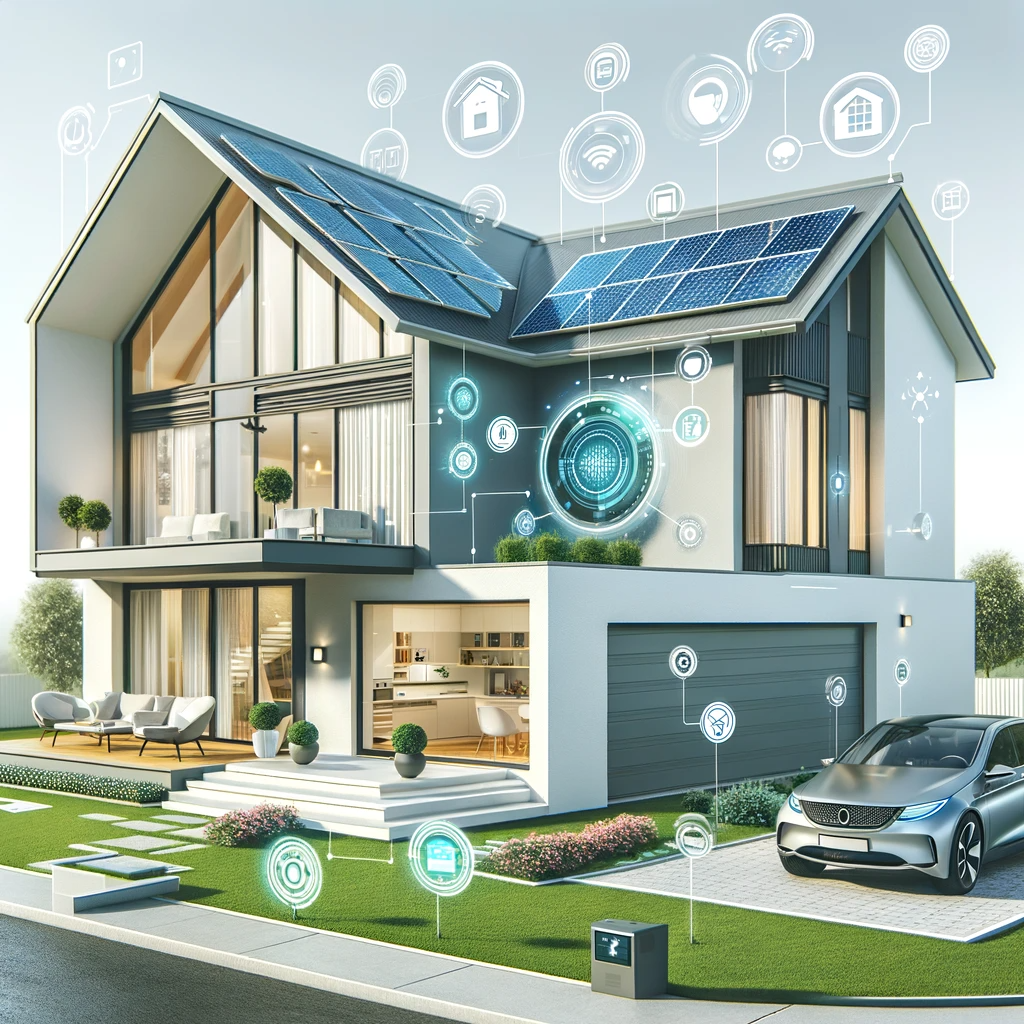In the ever-evolving landscape of technology, the concept of a smart home has transitioned from a futuristic fantasy to an imminent reality. Today, we stand on the brink of a revolution in how we live and interact with our surroundings. The smart homes of tomorrow promise not only enhanced convenience and efficiency but also a radical transformation in our everyday lives. In this exploration, we’ll delve into the exciting advancements and possibilities that lie ahead in the realm of smart home technology, painting a picture of a future where our homes are not just shelters, but intelligent partners in our daily lives.
1. Seamless Integration and Automation
The cornerstone of the future smart home is seamless integration and automation. Imagine a home where devices communicate with each other intuitively, adapting to your needs without requiring constant input. From the moment you wake up, your home would already be one step ahead, brewing your coffee, adjusting the thermostat, and even suggesting an outfit based on your schedule and the weather. This level of automation extends beyond mere convenience; it’s about creating a living space that actively enhances your quality of life.
2. Advanced Energy Efficiency
Energy efficiency is not just an environmental concern; it’s a practical one. Future smart homes will take energy-saving to new heights with advanced systems that optimize power consumption. Smart windows that adjust transparency to maintain optimal temperature, lighting systems that adapt to natural light levels, and appliances that run at the most energy-efficient times are just a few examples. These innovations will not only reduce our carbon footprint but also offer substantial savings on utility bills.
3. Health and Wellness Monitoring
Our homes will become guardians of our health. With integrated sensors and AI-driven analytics, future smart homes will monitor air quality, allergen levels, and even our health metrics. Imagine a bathroom mirror that can give you a health check-up as you get ready for the day or a kitchen that suggests recipes based on your nutritional needs. This proactive approach to health can lead to early detection of potential issues and a more informed, healthy lifestyle.
4. Enhanced Security and Safety
Security in a smart home goes beyond cameras and alarms. Future homes will be equipped with sophisticated systems capable of distinguishing between residents and strangers, detecting potential hazards like gas leaks or electrical faults, and even predicting maintenance needs before they become problems. This advanced security framework will provide peace of mind, knowing that your home is always looking out for your safety.
5. Personalized Living Experiences
Personalization is key in the smart home of the future. Your home will know your preferences and habits, adjusting lighting, temperature, and even music to suit your mood. Voice assistants will evolve to become more conversational and context-aware, providing assistance that’s as natural as talking to a friend. This personalized experience will extend to entertainment, with immersive, interactive media rooms that adapt content to the viewer’s preferences.
6. Sustainable and Self-Sufficient Homes
Sustainability will be a major focus in future smart homes. Integration of renewable energy sources like solar panels and wind turbines will become standard, making homes more self-sufficient. Water conservation technologies and sustainable building materials will also be key features, ensuring that our living spaces are in harmony with the environment.
7. Smart Home Robotics
Robotic technology will play a significant role in future homes. From cleaning robots to automated gardening systems, these robotic assistants will take over mundane tasks, freeing up our time for more enjoyable activities. As robotics technology advances, we can expect even more innovative solutions, like personal assistant robots that can help with everything from cooking to childcare.
8. The Internet of Things (IoT) Expansion
The IoT is the backbone of the smart home, and its expansion will be pivotal in future developments. With more devices and appliances becoming interconnected, the possibilities for automation and efficiency are endless. This interconnectedness will also extend to the broader community, with homes that can communicate with smart grids, transportation systems, and public services.
9. Virtual and Augmented Reality Integration
The integration of virtual and augmented reality (VR/AR) into smart homes will redefine our living spaces. VR/AR can be used for everything from virtual home renovations to interactive fitness programs. It can also provide new ways to connect with friends and family, making distance a non-issue.
10. Evolving with AI and Machine Learning
The heart of the smart home’s evolution lies in AI and machine learning. These technologies will enable homes to learn from our behaviors and adapt to our changing needs over time. The more we interact with our smart homes, the better they will become at anticipating and catering to our preferences.
The future of smart homes is a tapestry woven with the threads of technology, sustainability, and personalization. It’s a future where our homes are not just places we live in but intelligent environments that enhance every aspect of our lives. As we step into this new era, the possibilities are as limitless as our imagination.
